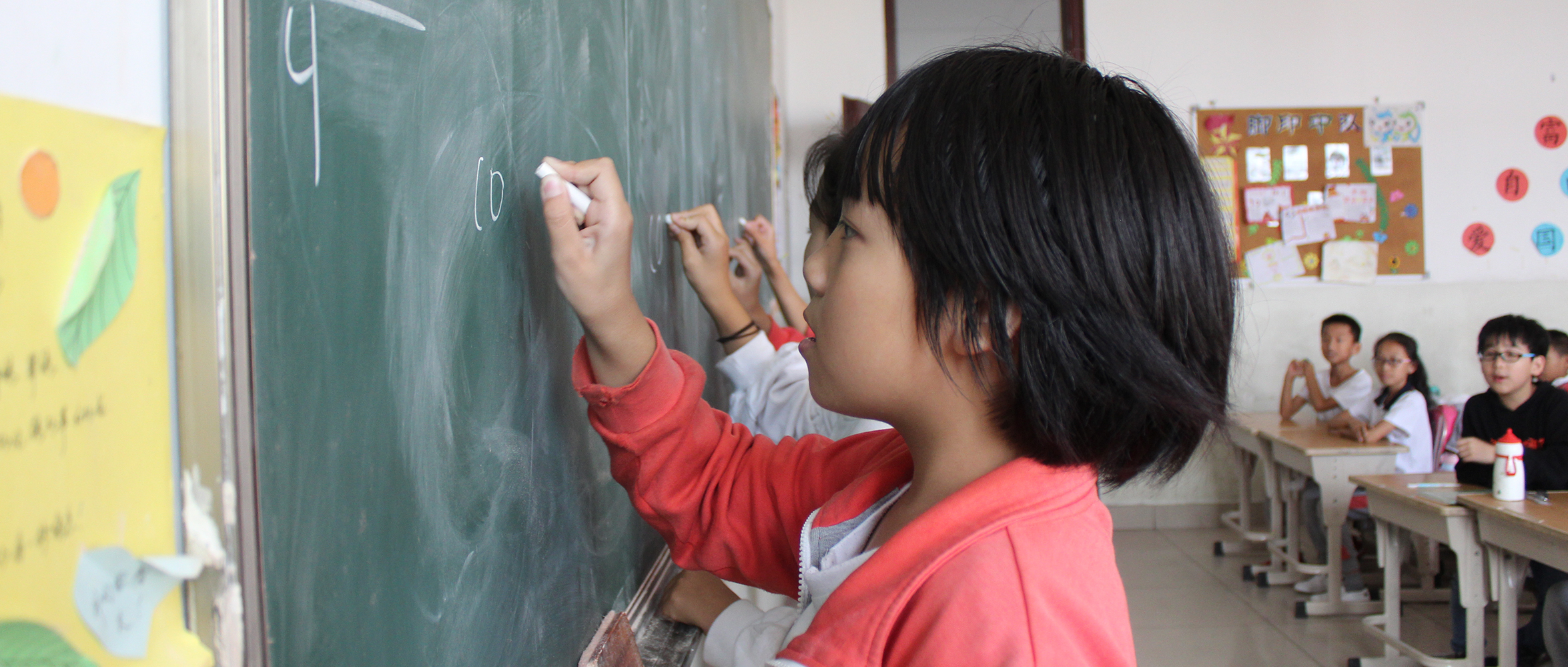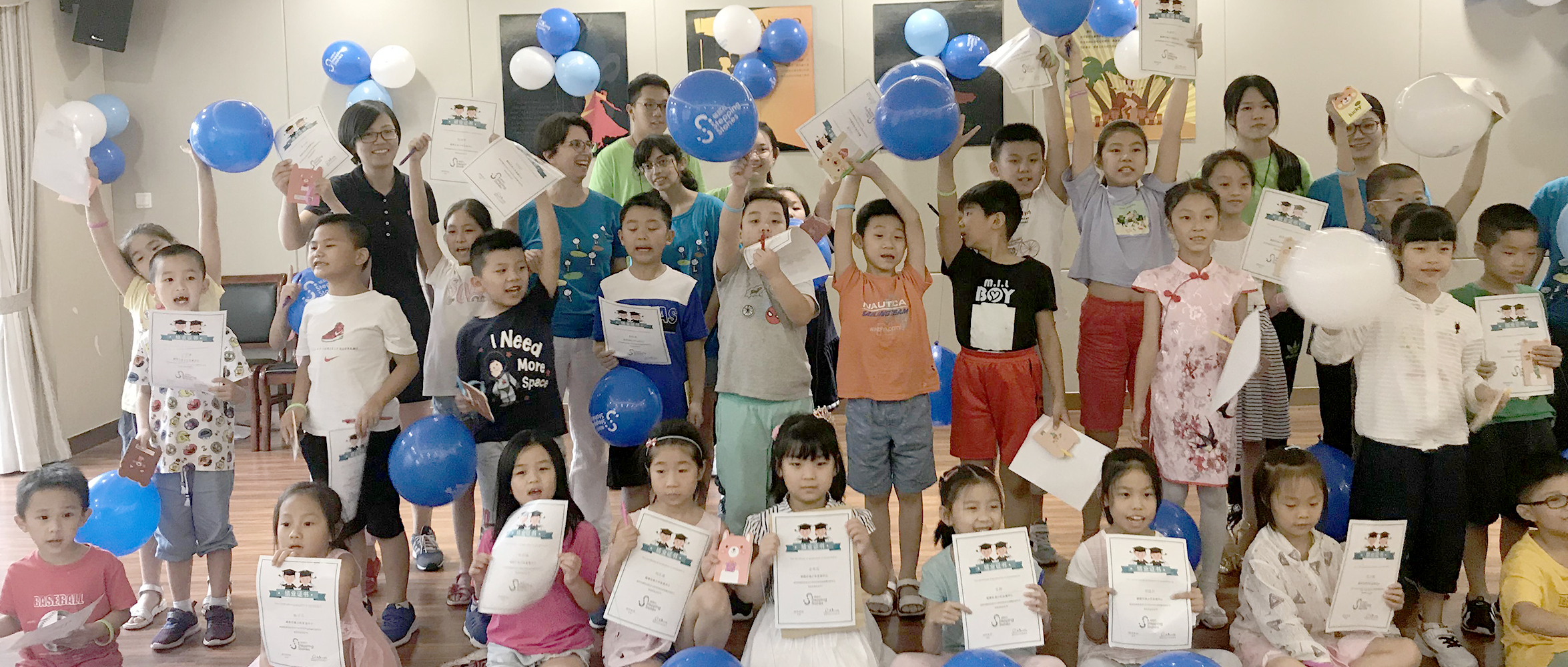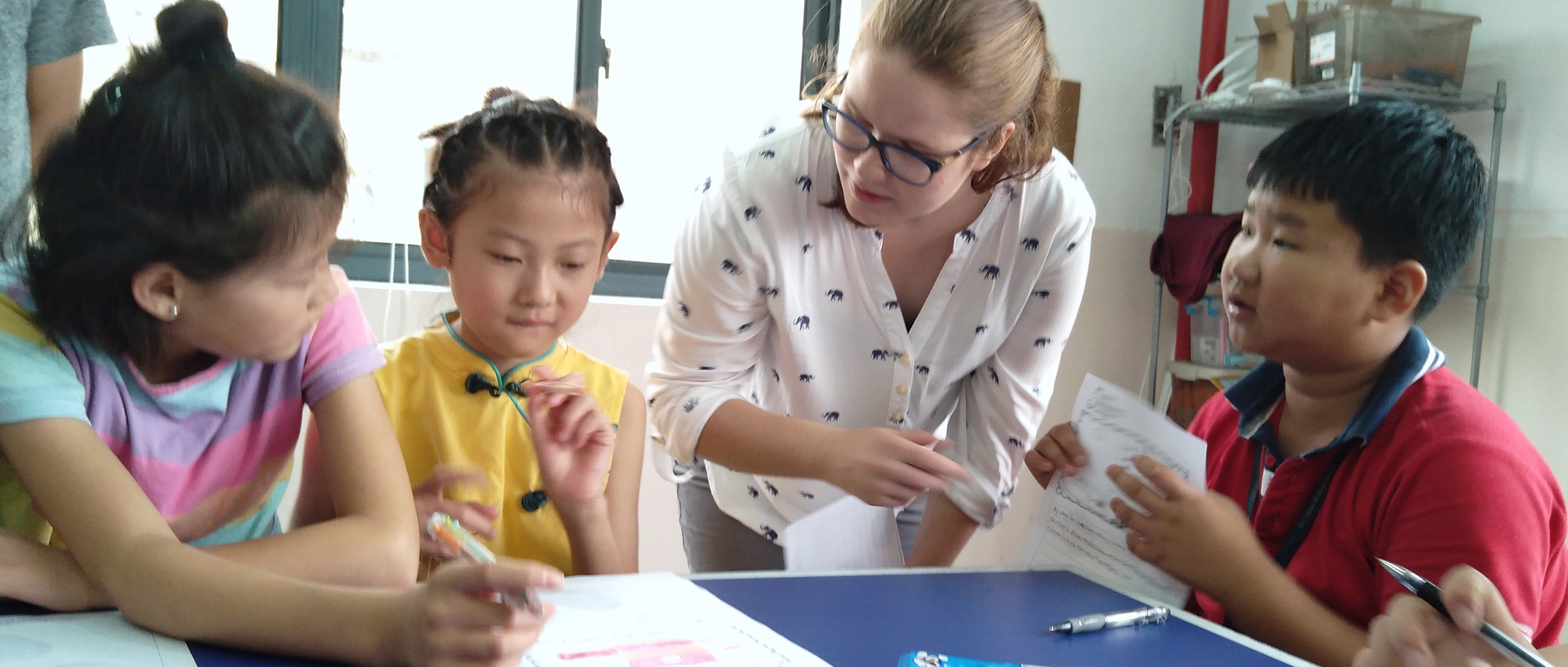Improving the education and general welfare of disadvantaged children in China
Improving the education and general welfare of disadvantaged children in China
Stepping Stones
Stepping Stones (上海闵行区华漕铺路石青少年发展中心) is a non-profit organisation registered in Shanghai and with a 3A status. With a mission to improve the education and general welfare of disadvantaged children in China, Stepping Stones has hosted numerous programs focused on children’s education and well-being since 2006. We recruit, train and support volunteers to teach essential 21st-century skills to under-served children and youth in China, focusing on digital literacy, foreign language, and social-emotional learning. We also provide professional training to foreign language teachers.
Stepping Stones’ work began in 2006, when principals of migrant schools in Shanghai and rural Chinese schools asked our founder to teach English to their students. English is the subject that poses the most challenges to rural and other under-served children, due to inadequate English language learning resources. Lack of attainment in English skills restricts educational and employment opportunities for disadvantaged children and youth. Our main objectives are to improve students’ motivation and confidence in English, which are two key dimensions of learning a second language.
Our program delivers lessons to thousands of students each year in 11 provinces. Students who participate in our program show increased interest and confidence in their studies, which improves their access to educational and work opportunities in the future. Additionally, students are exposed to different cultures, and get early experience of volunteer programs and volunteering spirit.
Our Focus
Our Focus is on three key 21st-century skills that students need to thrive at school and beyond.: English, digital literacy, and social-emotional skills.
English

Stepping Stones’ work began in 2006, when principals of migrant schools in Shanghai and rural Chinese schools asked our founder to teach English to their students. English is the subject that poses the most challenges to rural and other disadvantaged children, due to inadequate English language learning resources. Lack of attainment in English skills restricts educational and employment opportunities for disadvantaged children and youth. Our main objectives are to improve students’ motivation and confidence in English, which are two key dimensions of learning a second language.
Our approach is designed to place emphasis upon teaching English through speaking and listening activities and to maximize the active participation and engagement of students in the teaching-learning process. Our volunteers are trained to provide fun and interactive oral English lessons, which motivate and engage students by using only English in the classroom.
Digital Literacy
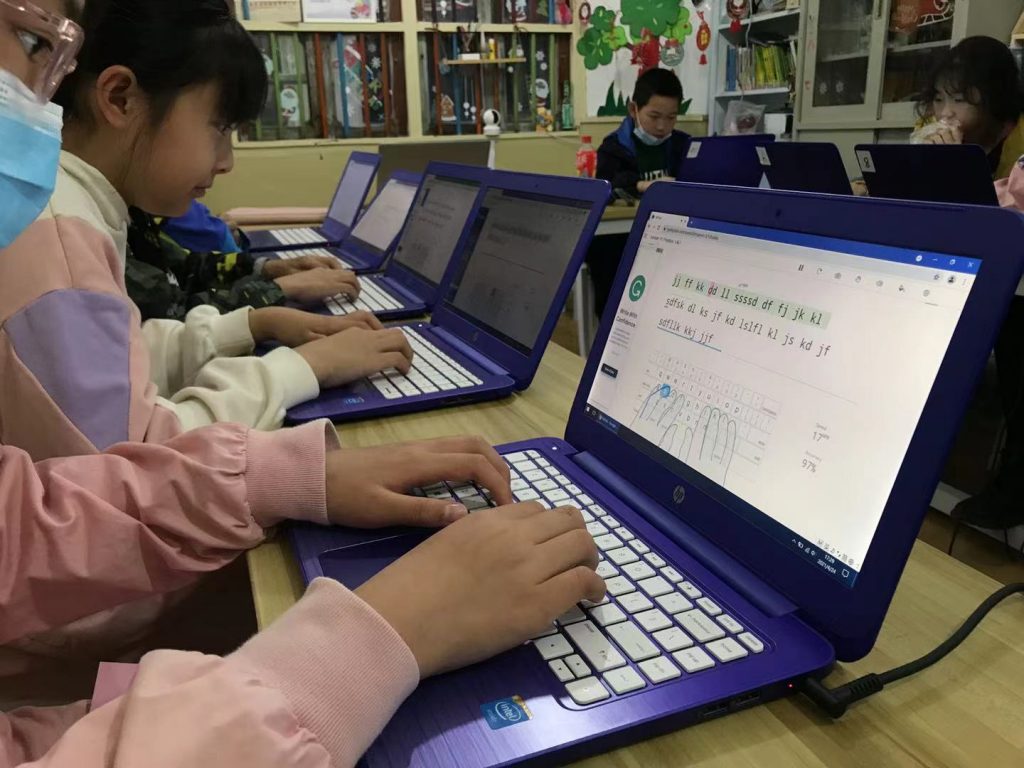
Digital literacy skills are essential for success in the 21st century. We can hardly live without the internet, and without computer skills, work opportunities are highly limited. Unfortunately, the digital literacy rate among our beneficiaries in China remains extremely low. This low rate can be attributed to lack of computers in homes and schools, and even where there are computers in schools, there is a shortage of computer teachers. Lack of digital literacy skills, together with low self-esteem, lack of support and a generally poor quality of education significantly contributes to a low rate of high school or vocational school enrollment in our beneficiary communities.
We do not believe that by simply bringing computers and internet to our beneficiaries, we will magically help each child to be successful. But we do believe that with the right balance of fun and challenge, mentoring, encouragement and discipline, as well as a carefully planned curriculum and properly trained teachers, we can begin to help the children develop many of the digital literacy skills they are currently missing to be better prepared for today’s fast moving and tech-focused society.
Social-emotional Learning
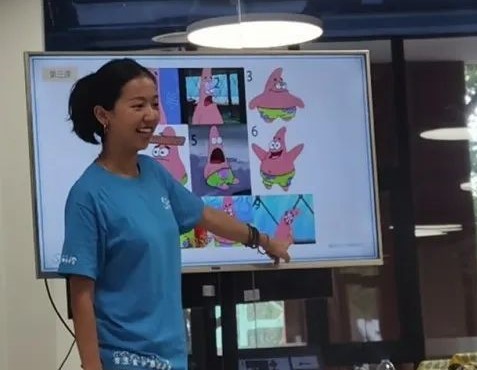
Social-emotional learning (SEL) is essential for students everywhere in the world because it teaches them key life skills, including the ability to understand themselves, develop a positive self-image, take responsibility for their actions, and forge relationships with the people around them. Research shows that students who participate in SEL have significant improvements in academic performance, improved mood and interpersonal relationships, and an increased overall sense of well-being, indicating the importance of the program to the overall development of children.
Our SEL training is based on Yale University's SEL theory and is committed to providing a safe discussion space for children to help them face challenges such as interpersonal communication and self-awareness as they grow. Through activity-based courses (discussions, games, reading, etc.), the training aims to cultivate children's key skills such as emotional management, social skills, and self-awareness, thereby improving their resilience and relationships, and enhancing their motivation to learn.

